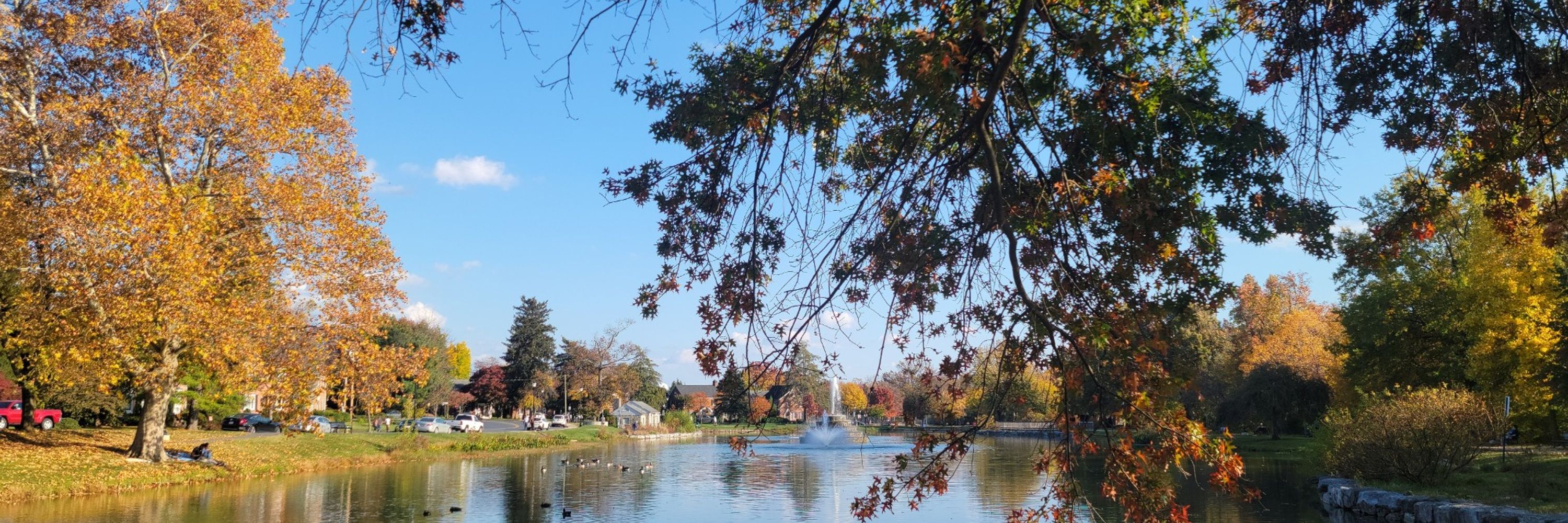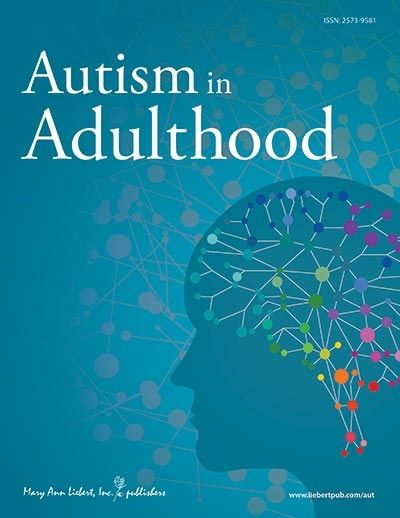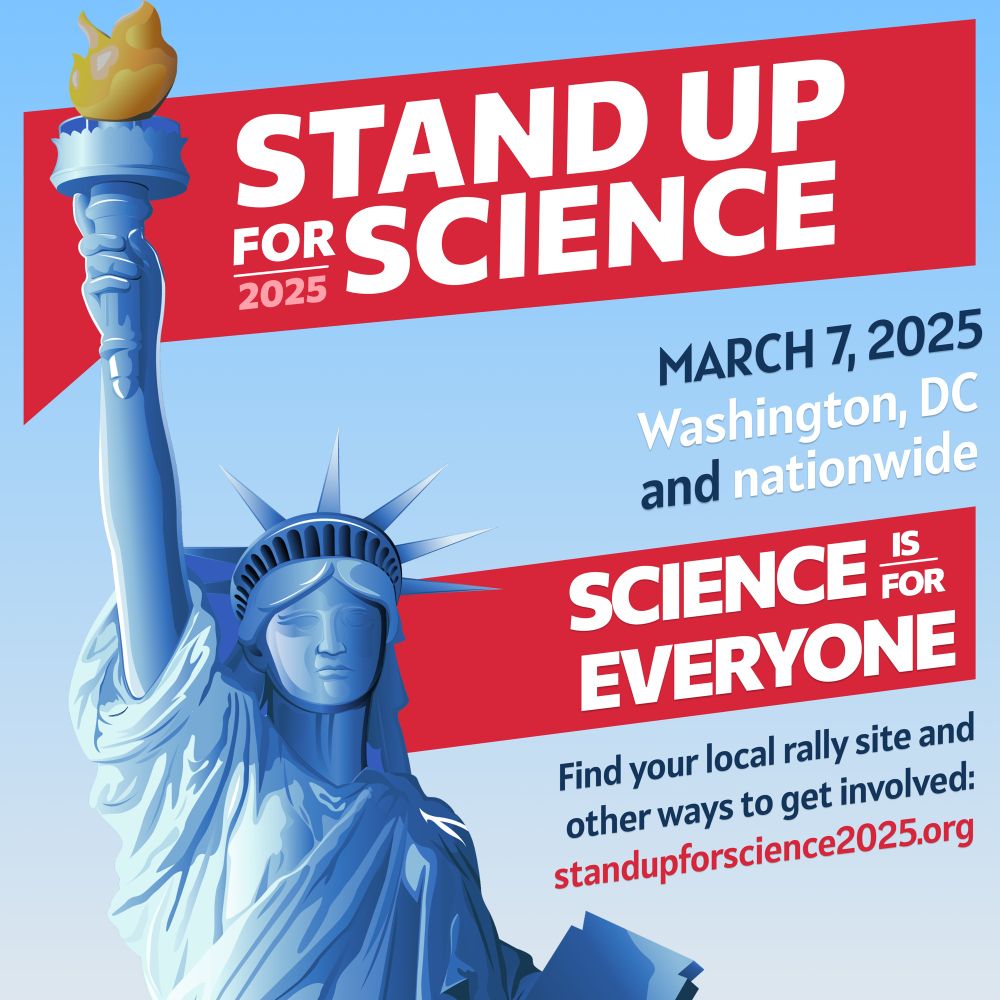
Desi Jones
@desirjones.bsky.social
Incoming Assistant Professor at UMD | autism, stigma, intersectionality, and Black neurodivergent experiences | Wellesley College Alumna | #ADHD cat mom
Reposted by Desi Jones
On autistic masking: "people can reflect & develop a deep self-awareness and understanding of your own needs, but without society being a safer place for autistic people, the onus on autistic people to unmask is cruel at best & incredibly dangerous at worst."
thinkingautismguide.com/2023/11/beyo...
thinkingautismguide.com/2023/11/beyo...

Beyond Masking and Towards Supporting Autistic Authenticity — THINKING PERSON'S GUIDE TO AUTISM
Dr. Amy Pearson on why the ability to express one’s authentic autistic self is much more complicated than an individual choice to unmask.
thinkingautismguide.com
October 11, 2025 at 5:05 PM
On autistic masking: "people can reflect & develop a deep self-awareness and understanding of your own needs, but without society being a safer place for autistic people, the onus on autistic people to unmask is cruel at best & incredibly dangerous at worst."
thinkingautismguide.com/2023/11/beyo...
thinkingautismguide.com/2023/11/beyo...
Reposted by Desi Jones
The experiences of autistic people with intersecting marginalized identities—especially Black autistic adults—"remain underexplored in research, contributing to a limited understanding of stigma’s impact across diverse communities." @desirjones.bsky.social et al:
www.liebertpub.com/doi/epub/10....
www.liebertpub.com/doi/epub/10....
www.liebertpub.com
October 1, 2025 at 8:52 PM
The experiences of autistic people with intersecting marginalized identities—especially Black autistic adults—"remain underexplored in research, contributing to a limited understanding of stigma’s impact across diverse communities." @desirjones.bsky.social et al:
www.liebertpub.com/doi/epub/10....
www.liebertpub.com/doi/epub/10....
Reposted by Desi Jones
The thing is, being autistic doesn't need to be "stopped" or "cured" or further demonized. The entire conversation is wrong.
September 22, 2025 at 2:19 AM
The thing is, being autistic doesn't need to be "stopped" or "cured" or further demonized. The entire conversation is wrong.
Reposted by Desi Jones
OK folks, the Stanford Neurodiversity Summit #SNS25 is underway. We're here to "treasure the strengths" of neurodivergent people. SNS is an outgrowth of the Stanford Neurodiversity Project, founded in 2018, which includes the Adult Neurodevelopment Clinic. The first SNS was in 2020. #neurodiversity
September 13, 2025 at 4:09 PM
OK folks, the Stanford Neurodiversity Summit #SNS25 is underway. We're here to "treasure the strengths" of neurodivergent people. SNS is an outgrowth of the Stanford Neurodiversity Project, founded in 2018, which includes the Adult Neurodevelopment Clinic. The first SNS was in 2020. #neurodiversity
Reposted by Desi Jones
I'm so proud of @desirjones.bsky.social for this important paper and all the hard work she put into it. I'm also very grateful for @drmbothapsych.bsky.social for their many contributions in shaping this project.
Black autistic adults are too often left out of conversations about stigma and autism.
Our new paper shows how stigma is shaped by race, gender, and sexuality, creating unique challenges for Black autistic adults, women, and LGBTQ+ autistic people.
www.liebertpub.com/d...
1/2
Our new paper shows how stigma is shaped by race, gender, and sexuality, creating unique challenges for Black autistic adults, women, and LGBTQ+ autistic people.
www.liebertpub.com/d...
1/2

“I’m Kind of Stuck in the Middle. I Don’t Know Where to Go”: Race, Autism, and Intersectional Stigma Among Black and White Autistic Adults | Autism in Adulthood
Background: Autistic adults frequently experience social stigma, which may be compounded by additional marginalized identities such as race, gender, and sexual orientation. Black autistic adults, in particular, may face unique challenges at the intersection of racial bias and autism stigma. However, the experiences of autistic people with intersecting marginalized identities remain underexplored in research, contributing to a limited understanding of stigma’s impact across diverse communities. Methods: We used qualitative methods to explore how intersecting identities shape autistic adults’ experiences of stigma and marginalization, with an emphasis on Black autistic adults. In total, 32 autistic adults (16 Black and 16 White) completed a semi-structured interview regarding their social experiences. Participants shared recent stories of peer exclusion, acceptance, discrimination, and support that they had experienced, as well as their feelings surrounding these events. We recorded and transcribed these interviews and used an inductive, or data-driven, approach to thematic analysis to identify salient themes in the data. Results: We generated three intersectional themes, which encompassed the unique impact of stigma on those with intersecting identities. Specifically, these themes included: (1) identity-based discrimination shaped by race, gender, and LGBTQ+ status; (2) challenges in obtaining and processing an autism diagnosis; and (3) difficulties navigating personal identity, particularly among Black autistic participants. While autistic adults broadly reported stigma experiences, Black participants often described layered forms of exclusion related to both their race and autistic traits. Across racial groups, women and LGBTQ+ participants also reported distinct forms of marginalization and erasure. Conclusion: These findings highlight how autism stigma intersects with other marginalized identities to shape social experiences. Black autistic adults, along with autistic women and LGBTQ+ autistic people, may encounter compounded barriers to acceptance, identity development, and belonging. These results underscore the need for more inclusive research and supports that attend to the diversity of autistic experiences.
www.liebertpub.com
September 8, 2025 at 5:25 PM
I'm so proud of @desirjones.bsky.social for this important paper and all the hard work she put into it. I'm also very grateful for @drmbothapsych.bsky.social for their many contributions in shaping this project.
Reposted by Desi Jones
If Robert F. Kennedy the Lesser's Big September Announcement "does indeed come out favoring folinate or folate as a 'cure' or 'treatment' for autism, then move over ivermectin bc there’s gonna be a new grift in town." @ejwillingham.bsky.social in the TPGA Newsletter:
buttondown.com/TPGA/archive...
buttondown.com/TPGA/archive...

RFK Jr's big September autism announcement | What autistic students want
RFK Jr is obsessed with mitochondria, probably thanks to the wellness whisperers around him.
buttondown.com
September 8, 2025 at 6:54 PM
If Robert F. Kennedy the Lesser's Big September Announcement "does indeed come out favoring folinate or folate as a 'cure' or 'treatment' for autism, then move over ivermectin bc there’s gonna be a new grift in town." @ejwillingham.bsky.social in the TPGA Newsletter:
buttondown.com/TPGA/archive...
buttondown.com/TPGA/archive...
Reposted by Desi Jones
"Black autistic adults, along with autistic women and LGBTQ+ autistic people, may encounter compounded barriers to acceptance, identity development, and belonging. [We need] more inclusive research & supports that attend to the diversity of autistic experiences."
www.liebertpub.com/doi/epub/10....
www.liebertpub.com/doi/epub/10....
www.liebertpub.com
September 9, 2025 at 2:13 AM
"Black autistic adults, along with autistic women and LGBTQ+ autistic people, may encounter compounded barriers to acceptance, identity development, and belonging. [We need] more inclusive research & supports that attend to the diversity of autistic experiences."
www.liebertpub.com/doi/epub/10....
www.liebertpub.com/doi/epub/10....
Reposted by Desi Jones
Black autistic adults are too often left out of conversations about stigma and autism.
Our new paper shows how stigma is shaped by race, gender, and sexuality, creating unique challenges for Black autistic adults, women, and LGBTQ+ autistic people.
www.liebertpub.com/d...
1/2
Our new paper shows how stigma is shaped by race, gender, and sexuality, creating unique challenges for Black autistic adults, women, and LGBTQ+ autistic people.
www.liebertpub.com/d...
1/2

“I’m Kind of Stuck in the Middle. I Don’t Know Where to Go”: Race, Autism, and Intersectional Stigma Among Black and White Autistic Adults | Autism in Adulthood
Background: Autistic adults frequently experience social stigma, which may be compounded by additional marginalized identities such as race, gender, and sexual orientation. Black autistic adults, in particular, may face unique challenges at the intersection of racial bias and autism stigma. However, the experiences of autistic people with intersecting marginalized identities remain underexplored in research, contributing to a limited understanding of stigma’s impact across diverse communities. Methods: We used qualitative methods to explore how intersecting identities shape autistic adults’ experiences of stigma and marginalization, with an emphasis on Black autistic adults. In total, 32 autistic adults (16 Black and 16 White) completed a semi-structured interview regarding their social experiences. Participants shared recent stories of peer exclusion, acceptance, discrimination, and support that they had experienced, as well as their feelings surrounding these events. We recorded and transcribed these interviews and used an inductive, or data-driven, approach to thematic analysis to identify salient themes in the data. Results: We generated three intersectional themes, which encompassed the unique impact of stigma on those with intersecting identities. Specifically, these themes included: (1) identity-based discrimination shaped by race, gender, and LGBTQ+ status; (2) challenges in obtaining and processing an autism diagnosis; and (3) difficulties navigating personal identity, particularly among Black autistic participants. While autistic adults broadly reported stigma experiences, Black participants often described layered forms of exclusion related to both their race and autistic traits. Across racial groups, women and LGBTQ+ participants also reported distinct forms of marginalization and erasure. Conclusion: These findings highlight how autism stigma intersects with other marginalized identities to shape social experiences. Black autistic adults, along with autistic women and LGBTQ+ autistic people, may encounter compounded barriers to acceptance, identity development, and belonging. These results underscore the need for more inclusive research and supports that attend to the diversity of autistic experiences.
www.liebertpub.com
September 8, 2025 at 2:28 PM
Black autistic adults are too often left out of conversations about stigma and autism.
Our new paper shows how stigma is shaped by race, gender, and sexuality, creating unique challenges for Black autistic adults, women, and LGBTQ+ autistic people.
www.liebertpub.com/d...
1/2
Our new paper shows how stigma is shaped by race, gender, and sexuality, creating unique challenges for Black autistic adults, women, and LGBTQ+ autistic people.
www.liebertpub.com/d...
1/2
Reposted by Desi Jones
acamh.onlinelibrary.wiley.com/doi/full/10.... Very useful but sobering new research by this fine team, on the upsetting experiences that autistic and ADHD young people endure in e.g. schools...and why the resulting distress/dysregulation isn't because of autism/ADHD.

JCPP Advances | ACAMH Child Development Journal | Wiley Online Library
Background Accounts of emotional dysregulation in autism and attention-deficit/hyperactivity disorder (ADHD) are typically based on external adult observations anchored in neurotypical notions of em...
acamh.onlinelibrary.wiley.com
August 26, 2025 at 9:32 AM
acamh.onlinelibrary.wiley.com/doi/full/10.... Very useful but sobering new research by this fine team, on the upsetting experiences that autistic and ADHD young people endure in e.g. schools...and why the resulting distress/dysregulation isn't because of autism/ADHD.
New commentary in JAACAP! Here, we highlight gaps in the literature on Black autistic youths' mental health, and call for research that examines risk and protective factors across individual, family, community, and societal levels.
Free access thru 8/31.
www.sciencedirect.com/science/arti...
Free access thru 8/31.
www.sciencedirect.com/science/arti...

The Critical Need for Research Examining Mental Health Risk and Protective Factors in Black Autistic Youth
www.sciencedirect.com
July 15, 2025 at 3:54 PM
New commentary in JAACAP! Here, we highlight gaps in the literature on Black autistic youths' mental health, and call for research that examines risk and protective factors across individual, family, community, and societal levels.
Free access thru 8/31.
www.sciencedirect.com/science/arti...
Free access thru 8/31.
www.sciencedirect.com/science/arti...
Reposted by Desi Jones
Think Elon Musk is out of Washington? Think again. DOGE is quietly building a massive data collection system designed to centralize unprecedented access to your personal information Social Security, taxes, medical diagnoses, and more.
May 7, 2025 at 1:55 PM
Think Elon Musk is out of Washington? Think again. DOGE is quietly building a massive data collection system designed to centralize unprecedented access to your personal information Social Security, taxes, medical diagnoses, and more.
Reposted by Desi Jones
Still fuming about that press conference. The way RFK Jr. talks about autism is not just scientifically wrong—it’s deeply offensive.
Calling autistic kids "damaged" or implying they’ve been "lost" or "stolen" doesn’t just spread misinformation—it dehumanizes real people.
Calling autistic kids "damaged" or implying they’ve been "lost" or "stolen" doesn’t just spread misinformation—it dehumanizes real people.
April 16, 2025 at 9:12 PM
Still fuming about that press conference. The way RFK Jr. talks about autism is not just scientifically wrong—it’s deeply offensive.
Calling autistic kids "damaged" or implying they’ve been "lost" or "stolen" doesn’t just spread misinformation—it dehumanizes real people.
Calling autistic kids "damaged" or implying they’ve been "lost" or "stolen" doesn’t just spread misinformation—it dehumanizes real people.
Reposted by Desi Jones
Join us for “Autism Myths and Misconceptions” on Thursday, April 17 at 4:00pm ET! Many people get confused about autism, and there’s a lot of wrong information about autism out there. This panel will talk about many of these ideas — register today!

Welcome! You are invited to join a webinar: Myths and Misconceptions About Autism. After registering, you will receive a confirmation email about joining the webinar.
Welcome! You are invited to join a webinar: Myths and Misconceptions About Autism. After registering, you will receive a confirmation email about joining the webinar.
us02web.zoom.us
April 2, 2025 at 9:00 PM
Join us for “Autism Myths and Misconceptions” on Thursday, April 17 at 4:00pm ET! Many people get confused about autism, and there’s a lot of wrong information about autism out there. This panel will talk about many of these ideas — register today!
Reposted by Desi Jones
Here are 10 ways to honor autistic people! While #AutismAwareness has a role, especially in spaces where autism info is bad/absent, autistic people deserve the love & respect that come with #AutismAcceptance — not merely acknowledgment that autism exists:
thinkingautismguide.com/2023/10/ten-... 1/
thinkingautismguide.com/2023/10/ten-... 1/

Ten Ways to Honor Autistic People Via Autism Acceptance
Autism awareness is passive; autism acceptance is a choice. Here are 10 ways you can honor Autism Acceptance, & autistic people of all ages.
thinkingautismguide.com
April 2, 2025 at 7:56 PM
Here are 10 ways to honor autistic people! While #AutismAwareness has a role, especially in spaces where autism info is bad/absent, autistic people deserve the love & respect that come with #AutismAcceptance — not merely acknowledgment that autism exists:
thinkingautismguide.com/2023/10/ten-... 1/
thinkingautismguide.com/2023/10/ten-... 1/
Reposted by Desi Jones
One way to be Autistic and Living the Dream is to have your first first-authored paper published (in the top autism journal @autisminadulthood.bsky.social) on Autism Acceptance Day! Congratulations @kmunday.bsky.social & important research on autistic adults' experiences with substance-use services.
I'm super excited that my first first-author journal is published in Autism in Adulthood!
"Improving Substance-Use Services for Autistic Adults: Insights and Recommendations from Autistic Adults"
w/ @emergentdivergence.com , Chris Papadopoulos & Tanya Adkin.
www.liebertpub.com/doi/10.1089/...
"Improving Substance-Use Services for Autistic Adults: Insights and Recommendations from Autistic Adults"
w/ @emergentdivergence.com , Chris Papadopoulos & Tanya Adkin.
www.liebertpub.com/doi/10.1089/...

Improving Substance-Use Services for Autistic Adults: Insights and Recommendations from Autistic Adults | Autism in Adulthood
Purpose: We aimed to explore autistic substance users’ experiences and their recommendations for improving substance-use services. Methods: We conducted an online cross-sectional questionnaire survey ...
www.liebertpub.com
April 2, 2025 at 4:29 PM
One way to be Autistic and Living the Dream is to have your first first-authored paper published (in the top autism journal @autisminadulthood.bsky.social) on Autism Acceptance Day! Congratulations @kmunday.bsky.social & important research on autistic adults' experiences with substance-use services.
This is silly, but just the idea of having my own lab has brought me so much joy. I just got keys to the space and filmed a little walkthrough video for my mom and husband. Can't wait to get things set up 🙂
April 2, 2025 at 6:01 PM
This is silly, but just the idea of having my own lab has brought me so much joy. I just got keys to the space and filmed a little walkthrough video for my mom and husband. Can't wait to get things set up 🙂
Reposted by Desi Jones
It's #NeurodiversityCelebrationWeek! But what is neurodiversity?
We wrote an article for young people explaining what neurodiversity means for different people and day to day life!
kids.frontiersin.org/articles/10....
We wrote an article for young people explaining what neurodiversity means for different people and day to day life!
kids.frontiersin.org/articles/10....

Neurodiversity Can Explain Differences in How People Experience Everyday Life
Neurodiversity means that all people’s brains process information differently from each other. In other words, people think and learn in a variety of ways. Being neurodivergent means that the way a pe...
kids.frontiersin.org
March 22, 2025 at 4:23 PM
It's #NeurodiversityCelebrationWeek! But what is neurodiversity?
We wrote an article for young people explaining what neurodiversity means for different people and day to day life!
kids.frontiersin.org/articles/10....
We wrote an article for young people explaining what neurodiversity means for different people and day to day life!
kids.frontiersin.org/articles/10....
Reposted by Desi Jones
TODAY IS THE DAY! 🧪☀️⬇️
Join us at the Lincoln Memorial or your local site to Stand Up for Science!
Join us at the Lincoln Memorial or your local site to Stand Up for Science!

March 7, 2025 at 11:44 AM
TODAY IS THE DAY! 🧪☀️⬇️
Join us at the Lincoln Memorial or your local site to Stand Up for Science!
Join us at the Lincoln Memorial or your local site to Stand Up for Science!
Sigh. I KNEW this was coming. Someone wrote an anti-DEI article about my postdoc program and linked a spreadsheet with all of our demographics and contact information.
March 6, 2025 at 7:49 PM
Sigh. I KNEW this was coming. Someone wrote an anti-DEI article about my postdoc program and linked a spreadsheet with all of our demographics and contact information.
Reposted by Desi Jones
FRIDAY: Join @standupforscience.bsky.social rallies around the US to protest funding cuts, illegal firings, and censorship of scientists. In response to the attacks, the most important thing we can do is to visually show that science has strong support in this country, so please show up if you can!
March 4, 2025 at 9:06 PM
FRIDAY: Join @standupforscience.bsky.social rallies around the US to protest funding cuts, illegal firings, and censorship of scientists. In response to the attacks, the most important thing we can do is to visually show that science has strong support in this country, so please show up if you can!
Reposted by Desi Jones
New studies on how rapport differs between autistic & non-autistic ppl suggest having other autistic interactants is more important for autistics' ease, enjoyment: journals.sagepub.com/doi/10.1177/..., & social-motor synchrony is more important for non-autistics: journals.sagepub.com/doi/10.1177/...

Sage Journals: Discover world-class research
Subscription and open access journals from Sage, the world's leading independent academic publisher.
journals.sagepub.com
February 25, 2025 at 4:54 PM
New studies on how rapport differs between autistic & non-autistic ppl suggest having other autistic interactants is more important for autistics' ease, enjoyment: journals.sagepub.com/doi/10.1177/..., & social-motor synchrony is more important for non-autistics: journals.sagepub.com/doi/10.1177/...
Reposted by Desi Jones
Very much so. The courts will not save us. We need to shift public opinion by spreading the word about what is really happening, and we need to push Congress members to act like this is an emergency.
Which it is.
Which it is.
February 24, 2025 at 5:51 AM
Very much so. The courts will not save us. We need to shift public opinion by spreading the word about what is really happening, and we need to push Congress members to act like this is an emergency.
Which it is.
Which it is.
Reposted by Desi Jones
In today's episode of doomerism isn't a strategy, here's a list of things you can do today to make the world around you suck a little bit less:
Pick ONE thing and do it.
bsky.app/profile/itsa...
Pick ONE thing and do it.
bsky.app/profile/itsa...

February 18, 2025 at 11:56 AM
In today's episode of doomerism isn't a strategy, here's a list of things you can do today to make the world around you suck a little bit less:
Pick ONE thing and do it.
bsky.app/profile/itsa...
Pick ONE thing and do it.
bsky.app/profile/itsa...
Reposted by Desi Jones
On our way to forward this post to the convention planning committee like
February 21, 2025 at 11:51 PM
On our way to forward this post to the convention planning committee like


